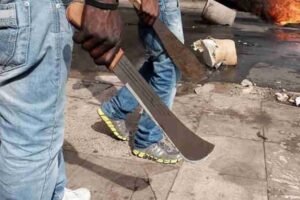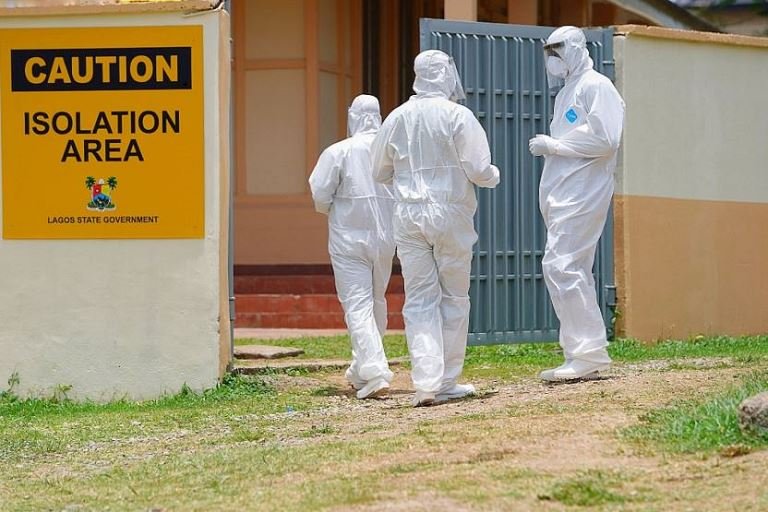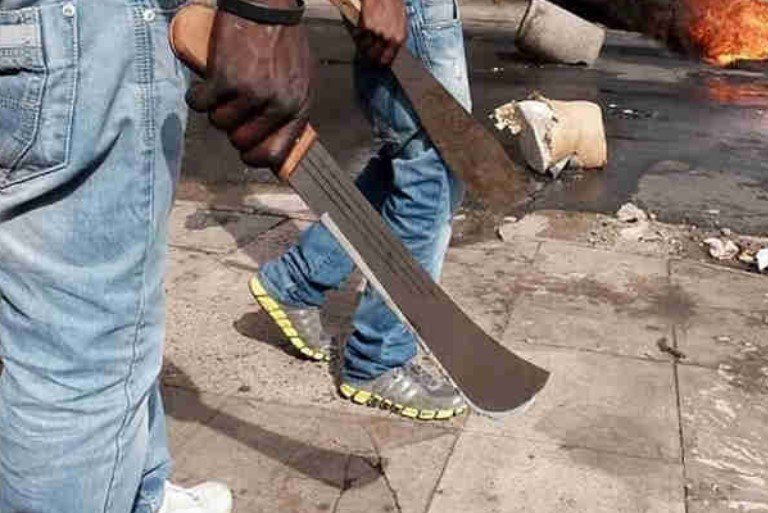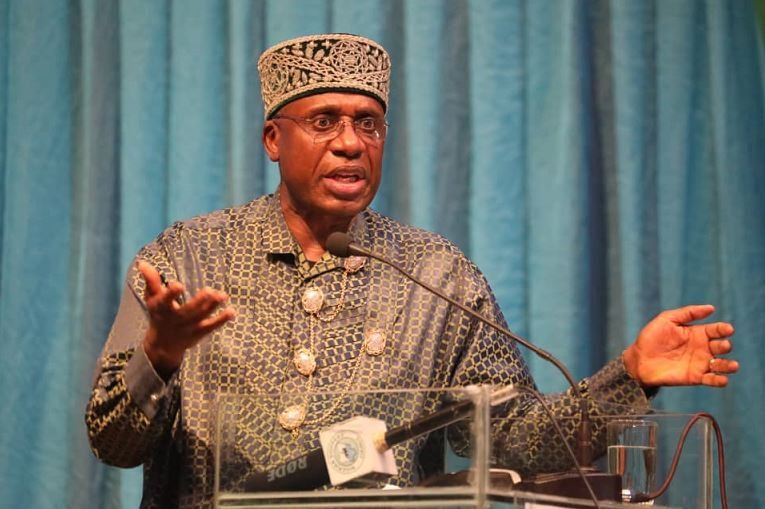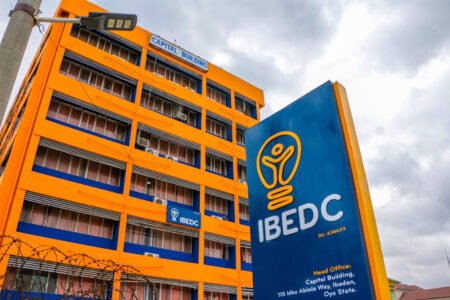By Lateef Adewole
“Waa pe l’aye, ojure o n’iribi, okan ni waa f’owomu.” (You’d live long or you wouldn’t experience hardship, one has to choose between them).
The “big masquerade” finally came out of his “shrine” and spoke. This past Sunday, President Buhari talked to Nigerians following unending demand and pressure from citizens who wanted to see and hear from their “elected” president. Despite the lateness or the legal issues that it threw up, the speech was well written, reassuring and had substance.
The president declared the much anticipated lockdown but only in three locations; Lagos, Ogun and the FCT. The president said; “Based on the advice of the Federal Ministry of Health and the NCDC, I am directing the cessation of all movements in Lagos and the FCT for an initial period of 14 days with effect from 11pm on Monday, 30th March 2020. This restriction will also apply to Ogun State due to its close proximity to Lagos and the high traffic between the two States.”
And that; “All citizens in these areas are to stay in their homes. Travel to or from other states should be postponed. All businesses and offices within these locations should be fully closed during this period.” This was after what Lagos has already done about 12 days earlier, when partial lockdown was being enforced, unlike this total one.
Since Tuesday, things have not been the same. Many states which were not included in that broadcast have been implementing various kinds of restrictions within their territory. All these are efforts to stem the spread of the rampaging coronavirus. As of the time of writing, Nigeria had recorded 210 infections, 25 recovered and discharged, with 4 deaths, across numerous states and the FCT.
So, the decision to shut down these states must have been difficult to arrive at, given their economic importance to Nigeria, the government operations and ultimately, the sufferings of the citizens that was likely to follow it. All these would have been weighted against the far-reaching consequences of leaving them free with the possibility of the virus spreading further than it already does and the attendant national disaster if it escalates. The government was between the rock and the hard place!

And expectedly, it has been very tough and rough in the past few days. Hunger is primarily the major problem of the people. The FG relaxed the lockdown on Wednesday by providing a four-hour window for food markets, stores and supermarkets to open between 10am and 2pm. Arriving at this must have been another dilemma. This is because, within those hours, wouldn’t the virus be spread? Would that not have defeated the essence of the lockdown to a large extent?
And if the total lockdown was to be insisted upon, I do not know how long that could have succeeded before a revolt by the people will occur. The reason being that, no matter how much food anyone stocked in their home, it would have finished after sometime. An hungry man is an angry man. In just the first two days of the directive, many people were already getting frustrated and grumbling. Many people’s woes were compounded with lack of power to preserve their stock-piled perishable food items. That was what the legendary Fela would call… “double wahala for deady body..” It was not funny at all.
Now that government gave the window for market to open, the second hurdle was money. Where is the money to buy more food? In Nigeria, majority of Nigerians are “hustlers”. They live on daily bread from hand to mouth. If they do not work in a day, it can become impossible for them to feed. And the window did not include working to make money. So, what will they do?
Earlier, Lagos state had announced their palliative measures. Governor Sanwo-Olu said the state planned to provide support food packages for 200,000 households in Lagos. This was quite impressive and very commendable. In fact, this crisis has brought out the “giant leader” in Mr. Babajide Sanwo-Olu. His responsiveness, along with his entire team in Lagos has been stellar. Kudos to them. More powers to their elbows.
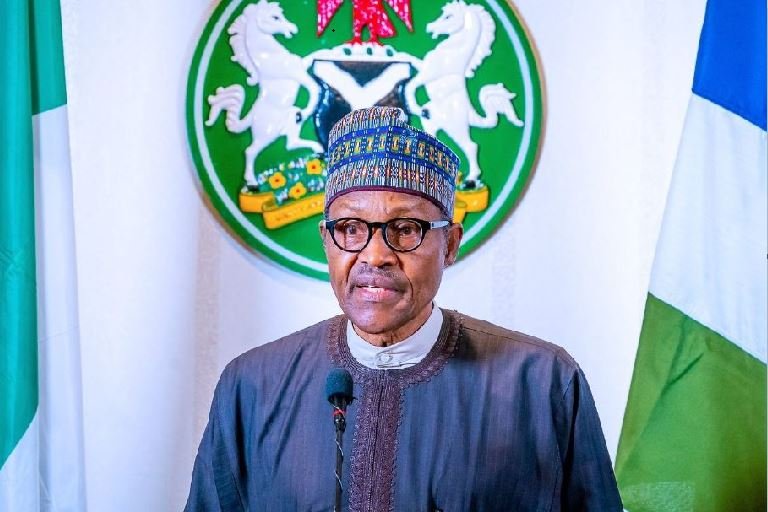
However, the major challenge will be sufficiency of the packages and how they will be distributed, given the estimated population of Lagos of about 20 million people and lack of proper data base. Though, they have started the distribution but the question is to who? How effective has it been? What is the impact? I will come back to this later.
In the president’s broadcast, he acknowledged the expected accompanying difficulties of the lockdown and highlighted some of the steps to be taken to ameliorate the suffering of the people. Among them were; continuation of the school feeding program, payment of money to the poorest and most vulnerable under the Conditional Cash Transfers of the FG, which has been on for about four years now. Another is moratorium on paybacks by the beneficiaries of TraderMoni, MarketMoni and FarmerMoni. Likewise, for people with loans with different government lending institutions. About 70,000 metric tonnes of grains was ordered to be released.
All these are wonderful efforts and the president should be commended for that. We can now see how important it is for our president to speak to us directly rather than by proxy. True leaders lead from the front and not the rear, particularly in the time of national crisis as we have now. Thank you Mr. President. Do not let anyone deceive you that it is your “style” not to talk to people who put you in office. That’s ludicrous.
To be fair, I have been a critic of some of these Social Investment Programmes (SIP) interventions all these years because of the chances of abuse, poor accountability or lack of it, and wastefulness of scarce resources on many occasions. I could not see the corresponding positive impacts on the citizens compared to the amount being spent. In the past four years, an average of 500 billion naira was allocated annually for the SIP in the budgets. I have asked; where is the money? What significant impacts did the 2 trillion naira have in 4 years? This was different from Abacha loots’ refunds and the likes.
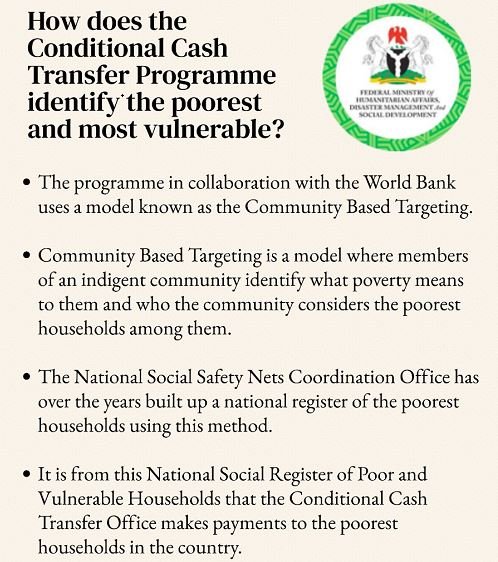
My biggest question has been what criteria were used to identify who is poor, extremely poor or not? Where is the data base that is being used for such disbursements? I watched an interview on Channels TV on Thursday where similar questions were asked a guest, who happens to be a federal house member, he could not provide any concrete answer.
I have also continued to search in different communities that I have visited to know who has received such transfers and how many of them? But I have not seen any. So, who are the people that have been collecting the money? Therefore, when this was restated in that broadcast, my opinion did not change. The process is too lopsided, opaque, and susceptible to fraud.
I watched the “sakamanje” sharing of heaps of money in Abuja, on the television. That was just “showbiz”. Sharing cash to random people without proper data and accountability amounts to wastefulness. And again, how can it be that it is Lagos that is locked down but money is being shared to people of Katsina, Anambra and Nasarawa. On what basis?
While I could understand the school feeding program while the session was on, but during a lockdown with all students already at home with their parents, continuing such programme as directed by the president is what “ayam not understanding”. How is that possible? We look forward to see how that will be implemented.
Back to the Lagos matter. With a population of 20 million, the ratio of the food packages will be 1 to 100 people. If we will use 57 LGs and LCDAs to divide them, that will be 3,508 packs per LG/LCDA. If we use wards, there are total 377 wards (245 recognised by federal and 132 created by Lagos), the food packages will be 530 per ward.
I read that the government actually used CDAs to share majorly with estimated over 4000 of them registered with Lagos. So, based on that, each CDA is supposed to collect 50 packs. Now I ask; how many CDAs or wards got as much as these figures I calculated above? There are various videos of the distribution now online where in one, the person claimed that only three food packages were given to the whole of their community (CDA) as against the 50 estimated abov. Another said he received some cups of rice and beans. These are my concerns. Many of those packages can end up in private homes of people given the responsibility of distributing them.

The federal government announced 10 billion naira support to Lagos state. Individuals and corporate organisations have donated massively to Lagos, different from what they donated to the FG. As at now, based on the news we read, individuals have donated over 15 billion naira and 11 billion naira from the NNPC, to Coalition Against Covid-19, championed by the CBN, under the FG.
Not all states are currently locked down. So, Lagos should get the chunk of that money. With all this large amount, Lagos will not only have enough money to provide the medical needs but to support its residents. By my estimation, the whole content of each food package (5kg rice, 5kg gaari, 3kg beans, and few other things like sealed tomatoes, bottle water) should not be more than 10,000 naira only (considering the economy of scale too), including packaging and other logistics. Lagos can set about 5 billion naira aside for the palliatives. That will give 500,000 packs. This will double my estimates per ward or CDA. But that is not the main problem.
The main problem is disorganisation and corruption involved. If a CDA claimed to have received only 3 packs as we saw in that video, that means 4000 CDAs will have 12,000 packs (assuming all CDAs received the same number). Where are the rest of 188,000 packages? Without adequate organisation, effective distribution and proper monitoring, all will amount to wastes. They will not reach the targeted people.
There are some ways I believe government can support the people at this time. Firstly, workers who have not been paid salaries of March 2020 should be paid. All salary earners in public and private who have been paid should have no problem staying at home. Afterall, the April salary will simply be almost free when paid. This will take care of about 30 percent of Lagosians.
About 10 percent others are averagely well-to do. That leaves the government with about 60 percent. With 5 billion naira worth of food packages (500,000), efficient distribution and proper monitoring, substantial number of households will be served. CDAs at ward levels remains the best way to reach the grassroot. They know the most vulnerable who are qualified for these palliatives amongst them. But will the politicians let that happen? They need to involve Civil Society Organisations (CSOs) and opposition parties to ensure accountability.
Some have suggested that those donating money to FG should have helped their communities directly or provide the palliatives or supports by themselves, like putting up the structures, buying the equipment, supporting the citizens directly. Telecom companies can give feedback airtime and data. Pay TV can give free subscriptions to lower end users. They can also reduce cost of data and subscriptions. Such is the extent to which people in government are trusted. So unfortunate. The private sector, which has donated a chunk of the money, should be involved in managing it.
The FG should make regular power available free for this period. That cost would have become savings for the users. Also pipe borne water should be free where available. The price of fuel should be reduced further. Food subsidy can be considered. Sharing palliatives should be through the states and LG’s overseen by federal agents, and Lagos model can be adopted with proper monitoring where feasible. Community leaders should be involved. The security agents should be properly briefed to avoid abuse of their powers. FG needs to collate reliable data in future this above all else is the greatest bane we are suffering.
Our thoughts and prayers are with our medical personnel and health workers who risk their lives to protect all of us. May God protect and strengthen them. Same for all the people who have been working round the clock to tackle the Covid-19 pandemic. Let us all obey government directives by staying at home, avoid public gatherings, maintain social distancing, proper hygiene, wash hands regularly, and so on. Individuals should reach out to their neighbours and support them where they can.
May God continue to protect us.
God Bless Nigeria.
Lateef Adewole is a political analyst and social commentator can be reached by email lateefadewole23@gmail.com or via WhatsApp +2348020989095 and @lateef_adewole on Twitter
